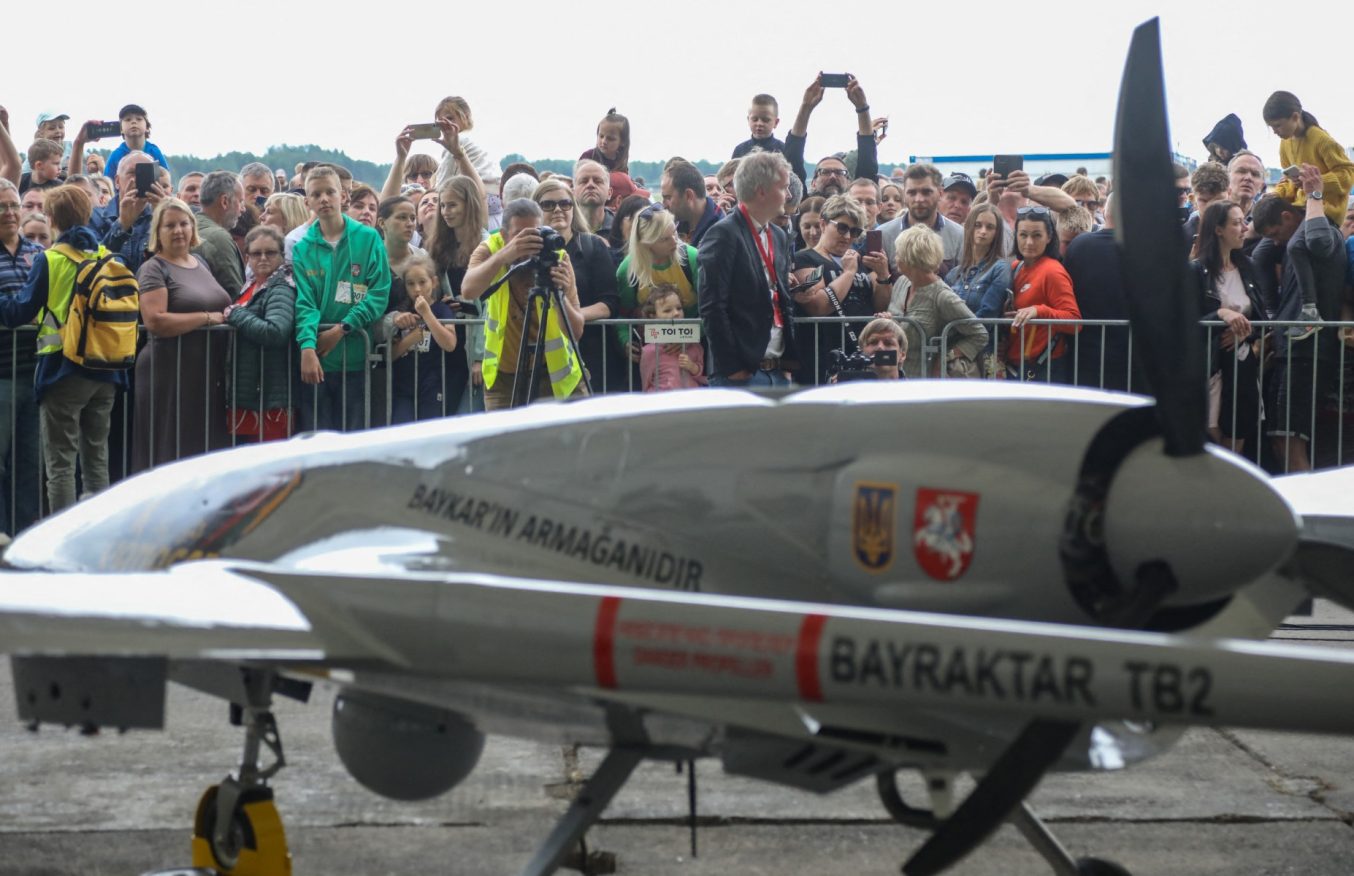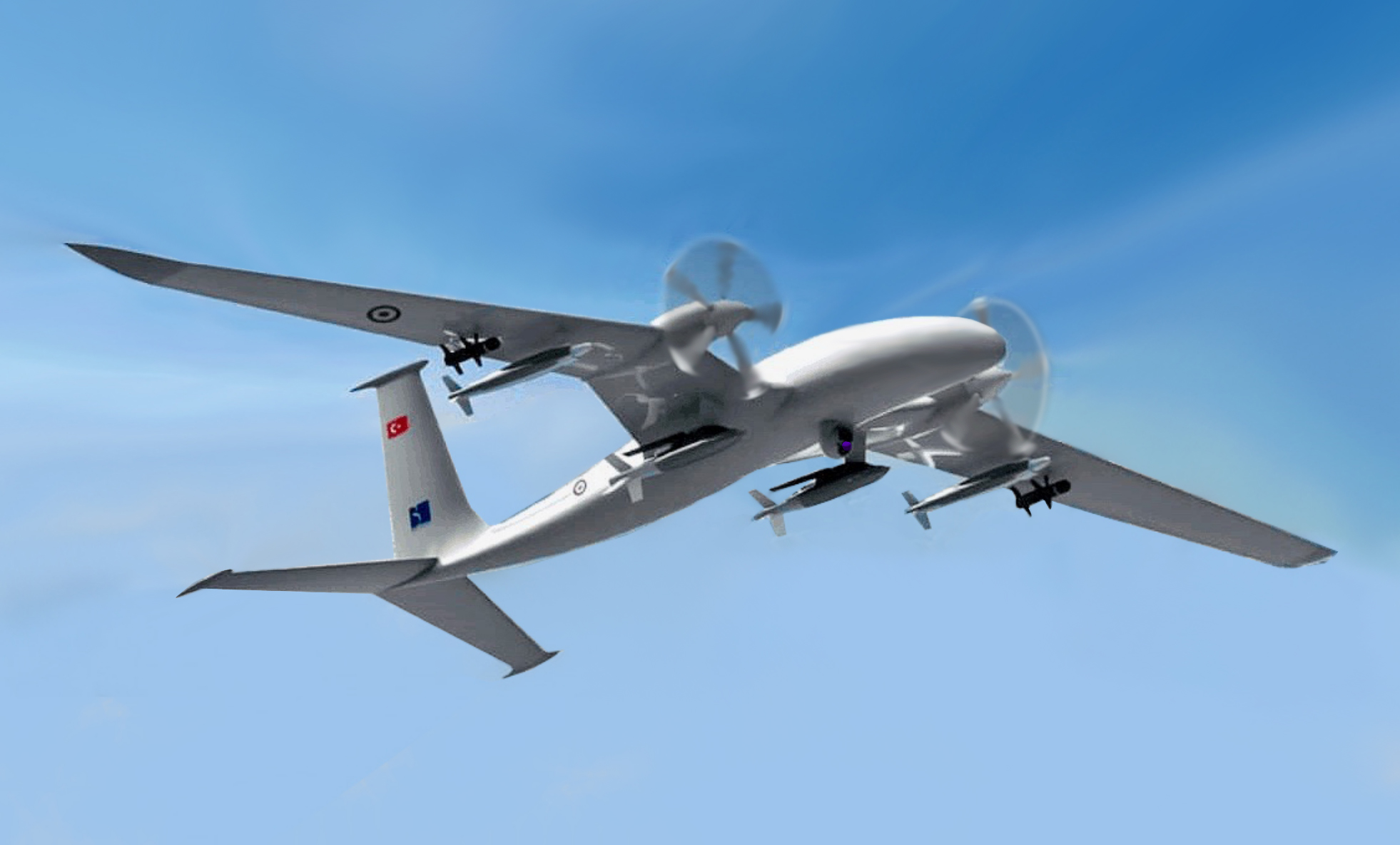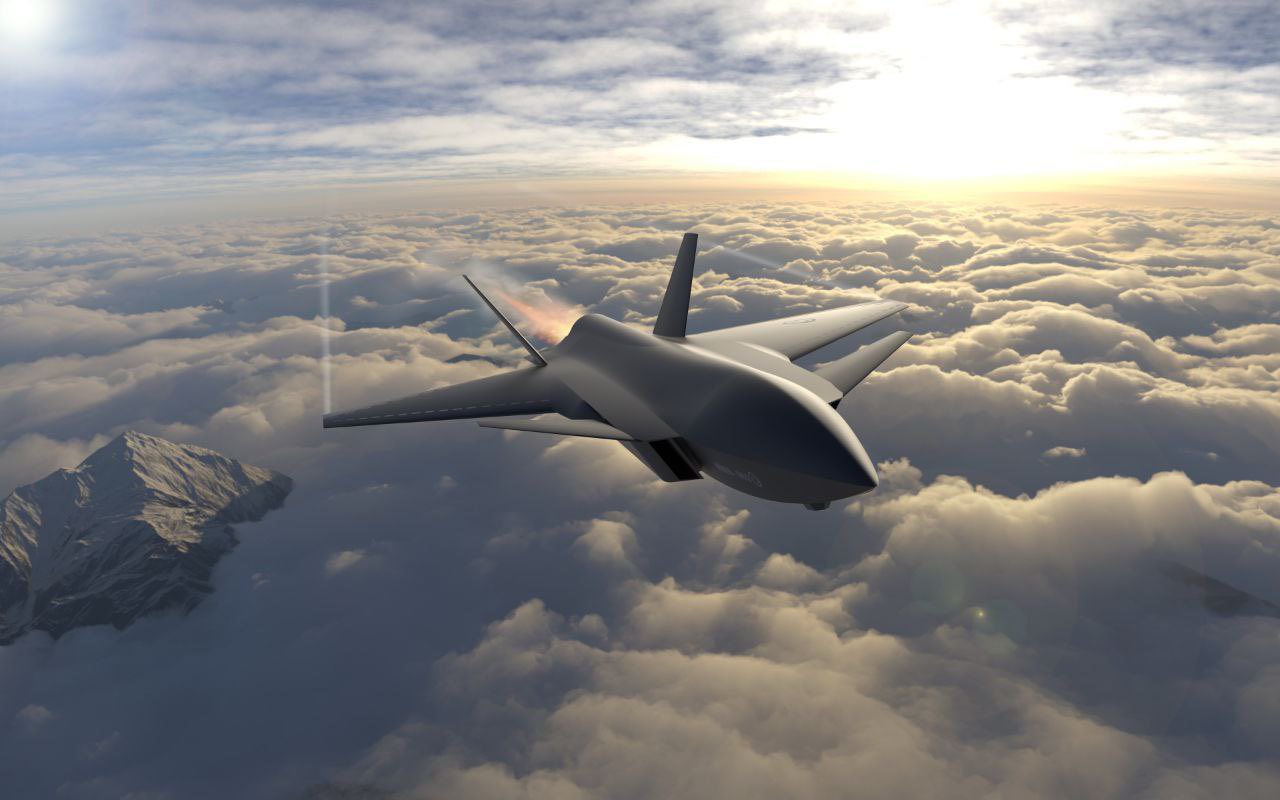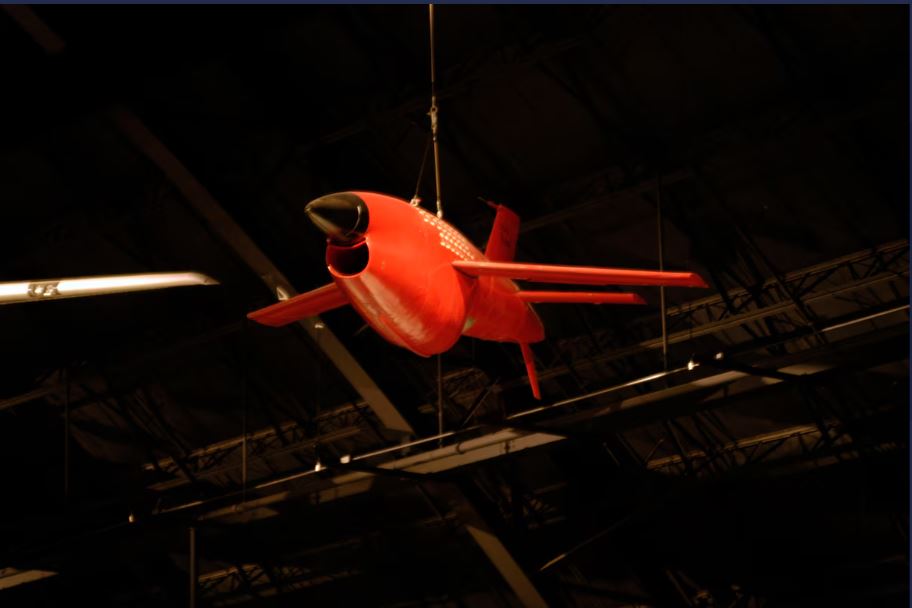F-35 “Swap Deal” For Bayraktar Drones? Why Trump Wants Turkish UAVs To Be Made In USA? How Does Pentagon Benefit?

While discussing F-35 stealth fighters for Turkey, the US has requested that Baykar, Turkey’s leading drone manufacturer, establish a production facility in the country.
Turkish Foreign Minister Hakan Fidan stated that U.S. officials have requested that Turkish drone manufacturer Baykar establish a production facility in the U.S.
“Just the other day, I was at a meeting and there were requests and events there regarding the technology produced by Baykar, which could be a production area within the U.S., and the U.S. could benefit from this advanced technology in Türkiye,” Fidan told reporters at Turkish House in New York.
Furthermore, regarding the Countering America’s Adversaries Through Sanctions Act (CAATSA), Fidan stated that the existence of a legal restriction between two NATO allies that prevents them from receiving anything from each other constitutes a “major systemic problem.”
His remarks followed a bilateral meeting between Turkish President Recep Erdoğan and U.S. President Donald Trump, their first since Trump returned to the White House in January of this year.
US Efforts To Catch Up In Drone Manufacturing
While the world media focused on whether the US would agree to take Turkey back into the F-35 program, the suggestion for Baykar to establish a production facility in the US is equally important.
Earlier, the Trump administration had expressed its willingness to involve Ukraine in drone manufacturing in the US, leveraging Kyiv’s experience in producing drones that are combat-tested.
In June, Trump signed an executive order to accelerate U.S. drone production by utilizing the latest innovative industry technologies. And in July, US Defense Secretary Pete Hegseth signed a new memo, ordering the removal of any policies that slow down the development and deployment of drones in the US.
Treat drones like bullets and “small munitions more than high-end airplanes,” Hegseth has said while signing the memo.
The suggestion for Baykar to establish a production facility in the US once again highlights the significant progress Turkey has made in the critical field of drone technology.
Turkey’s Leadership In Drone Manufacturing
Turkey has already established itself as a dominant player in military drone exports.
According to the U.S.-based think tank Center for New American Security (CNAS), Turkey accounted for approximately 65% of worldwide UAV exports as of late 2024.
This share is primarily driven by Baykar, the country’s leading drone manufacturer, which alone represents about 60% of Turkey’s UAV production and has export deals with over 30 countries for its flagship Bayraktar TB2 model.
The TB2, one of Baykar’s flagship combat drones, has achieved international recognition for its operational success in conflicts including Ukraine’s defense against Russian forces, Azerbaijan’s military campaigns, and operations in North Africa.
Described by Bayraktar as “the most-exported combat drone in the world,” the TB2 has cemented Baykar’s reputation as a leading exporter.
In 2023, Baykar generated 90% of its revenue from international markets, with exports climbing to US$1.8 billion, up from US$1.2 billion in 2022. In 2024, the company achieved exports of slightly over US$1.8 billion.
The company has also signed deals with more than 10 countries for its heavy Akıncı combat drones.
Baykar is also developing Türkiye’s first unmanned fighter jet, Kızılelma, which had its maiden flight in late 2022. Earlier this week, the Bayraktar KIZILELMA completed its first armed flight test. The test was conducted with ASELSAN-produced TOLUN ammunition.
The Bayraktar TB3 drone, tailored for use on short-runway warships like Türkiye’s first aircraft carrier, successfully completed its first take-off and landing on such a vessel in November last year.
According to Baykar, the TB3 is the first combat drone in the world to feature foldable wings, thereby enhancing its versatility and adaptability.
However, Baykar was not always the big corporation it is today under the leadership of Selcuk Bayraktar, the Chairman and Chief Technology Officer (CTO), and his brother Haluk Bayraktar, the Chief Executive Officer (CEO).
Baykar started as a modest automotive parts manufacturing company in 1984. Incidentally, the man who turned around the fortunes of the company, Selcuk Bayraktar, himself has a deep connection to the US.

Baykar: Making Of A Drone Powerhouse
Baykar was founded by Ozdemir Bayraktar in 1984.
Initially, the company produced automotive parts, including engines, pumps, and other components, to support the indigenization of Turkey’s automotive industry, which had previously relied heavily on foreign parts.
At the dawn of the 21st century, in 2000, Baykar initiated Research and Development (R&D) work on Unmanned Aerial Vehicle Systems (UAVs). This was a watershed moment in the company’s history and one that would change the destiny of Baykar as well as that of Turkey.
At that time, Selcuk Bayraktar was a PhD candidate at the Massachusetts Institute of Technology (MIT), studying unmanned aerial systems. Selçuk Bayraktar took it upon himself to develop advanced drone technology indigenously.
In 2004, Baykar carried out the first UAV flight using indigenous electronic and software systems. This was a massive milestone for the company.
Selçuk Bayraktar called upon Turkish officials to invest in drone technology.
“If Turkey supports this project, these drones, then in five years, it can easily be at the forefront of the world in this field.”
In 2005, a tender for the ‘Mini UAV’ was issued, and later that same year, the company conducted an autonomous flight demonstration of the Bayraktar Mini UAV at a Turkish Aerospace Industries (TAI) facility. The development and production of the drone started in 2006.
The success in developing the Mini UAV emboldened Baykar, and it launched R&D on a ‘rotary wing’ Mini UAV in 2006. Subsequently, the Rotary Wing Mini UAV was also delivered in 2009.
Following this, a new era of drone manufacturing commenced at Baykar. What followed was Turkey’s Tactical UAV System program, which ultimately led to the development of the Bayraktar TB1, and by extension, the TB2 and TB3 UAVs.
The Bayraktar TB1 was merely a prototype and never delivered to the armed forces. However, it became the basis for the production of the popular Bayraktar TB2 UAV.
The TB2 tactical UAV featured a twin-engine propeller aircraft big enough to carry missiles that could hit a target up to 8 kilometers away with accuracy and fly for over 24 hours without refueling.
The UAV had its first test flight in 2014, and the first batch was delivered to the Turkish Armed Forces that same year.
The TB2 has since earned a reputation as the world’s most popular drone. It first made headlines in 2016 when Turkey deployed it in the ‘Operation Euphrates Shield’ in Northern Syria.
This marked the first kill made by the TB2. The drone has demonstrated impressive combat performance across battlefields, including in the 2020 conflict between Azerbaijan and Armenia over the enclave of Nagorno-Karabakh, in the Ukraine War, and in multiple African countries.
Qatar became the first country to purchase the TB2 in 2018, followed by Ukraine. Over two dozen countries have purchased the TB2 UAV so far.
In 2024, the TB2 was the world’s most exported drone, outperforming competitors from Israel, the United States, and other countries.
According to the Clash Report, Baykar exported 34 Bayraktar TB2 drones in 2024.
Israel Aerospace Industries’ (IAI) Heron drone ranked second with approximately 14 units exported, followed by Elbit Systems’ Hermes 450 in third place with 12 units sold globally.
The TB2 initially used components made in the U.S., Canada, and Europe, including Germany, pushing some lawmakers in NATO countries, such as Germany and the US, to call for restricting technology transfer to Baykar.
However, by 2022, 93 percent of TB2’s parts were locally manufactured.
Akinci was delivered to the Turkish Armed Forces in 2021.

Named after the Turkish word for ‘Raider,’ Bayraktar Akinci is a high-altitude, long-endurance drone that can be armed with weapons. The drone is equipped with a variety of air-to-air and air-to-ground missiles.
The Akinci has already been purchased by Pakistan, Azerbaijan, Libya, Ethiopia, Burkina Faso, and Mali.
Next came Kizilelma, an unmanned fighter jet that is expected to carry out a wide range of military operations, including close air support (CAS), missile offensives, suppression of enemy air defenses (SEAD), and destruction of enemy air defenses (DEAD).
The Turkish Kizilelma unmanned aircraft is expected to fly for five hours and travel at speeds of up to 800 kilometers per hour, equivalent to a speed of Mach 0.64. With a maximum take-off weight of 6 tons, the drone is planned to have a 1,500-kilogram payload capacity.

According to reports, this aircraft is expected to fly alongside Turkey’s upcoming fifth-generation aircraft, KAAN.
US: From Leading Drone Research To Asking Turkish Cooperation
In July this year, while signing a new bold US drone initiative, Pete Hegseth said, “Lethality will not be hindered by self-imposed restrictions, especially when it comes to harnessing technologies we invented but were slow to pursue.”
His remarks underline a harsh truth: the US invented and led drone research for many decades, but due to export restrictions, bureaucratic delays, and a slow acquisition process, it lost its lead, and many new players, such as China, Turkey, and Ukraine, seized the initiative.
Hegseth’s narrative echoes well-documented U.S. drone history. The U.S. pioneered modern UAVs, such as the Ryan Firebee in the 1960s and Predator in the 1990s, leading global research through DARPA and companies like General Atomics.

However, strict export controls (e.g., the Missile Technology Control Regime) and slow acquisition processes have allowed countries like Turkey and China to dominate commercial and low-cost military markets.
Now, to catch up, the US is seeking joint endeavors with countries like Ukraine and Turkey.
Ironically, Baykar, the company with which the US is exploring joint drone development programs, owes its success in no short measure to the leading drone research conducted at US Universities in the 1990s and early 2000s.
Selçuk Bayraktar, the CTO of Baykar and the developer of the TB2, completed his master’s degree in Unmanned Aircraft Systems at the University of Pennsylvania.
After his master’s degree, he pursued a second master’s degree with a scholarship on aggressive maneuvering control of unmanned aerial vehicles at the Massachusetts Institute of Technology .
Bayraktar subsequently worked on automatic flight control algorithms for unmanned helicopter systems during his doctoral studies at MIT.
After completing his studies, he returned to Turkey and initially manufactured drones using a significant amount of imported parts from the US and Germany.
Now, the US wants the same company to establish a drone manufacturing unit in the US.
For Bayraktar, history has come full circle!
- Questions and Answers
- Opinion
- Motivational and Inspiring Story
- Technology
- Live and Let live
- Focus
- Geopolitics
- Military-Arms/Equipment
- Seguridad
- Economy
- Beasts of Nations
- Machine Tools-The “Mother Industry”
- Art
- Causes
- Crafts
- Dance
- Drinks
- Film/Movie
- Fitness
- Food
- Juegos
- Gardening
- Health
- Home
- Literature
- Music
- Networking
- Other
- Party
- Religion
- Shopping
- Sports
- Theater
- Health and Wellness
- News
- Culture

